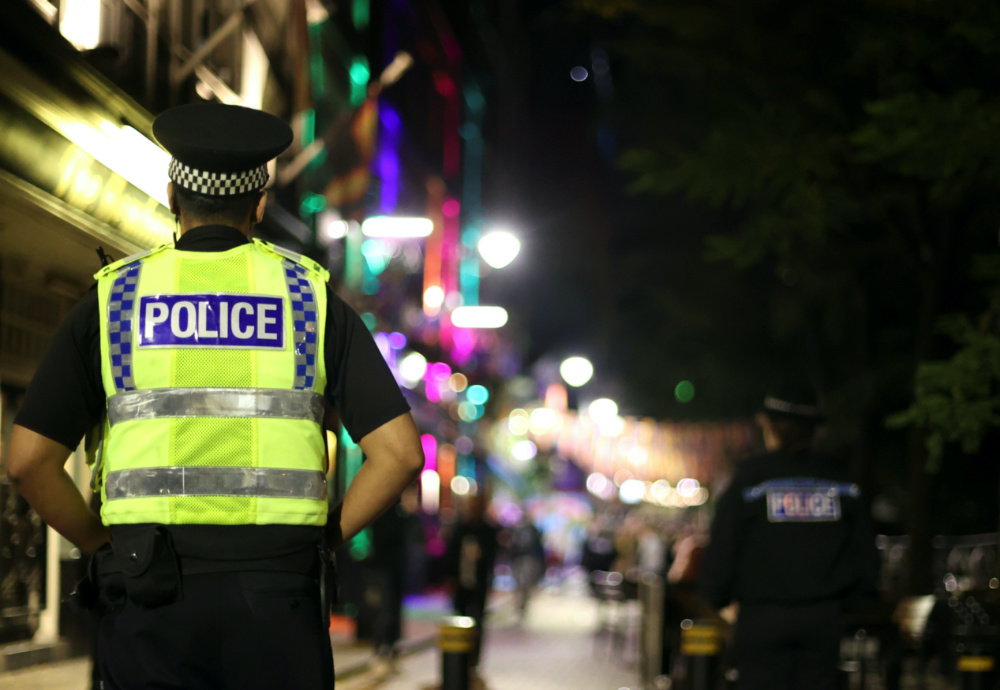London
Thomson Reuters Foundation
England’s month-long coronavirus lockdown will hinder efforts to spot and support children trafficked by drug gangs, researchers said on Friday, warning that more girls and young people from wealthy families were being targeted on social media.
People were ordered to stay at home from Thursday to combat a surge in infections that scientists say could, if unchecked, cause more deaths than the first wave. The United Kingdom is grappling with more than 20,000 new coronavirus cases a day.

Police officers stand guard in the street before a local lockdown amidst the spread of the coronavirus disease (COVID-19) in Manchester, Britain, on 22nd October. PICTURE: Reuters/Carl Recine/File photo.
The nation’s first lockdown from March to July did not curb the use of children as drug mules by criminals, but made it more difficult for social workers to engage with young people face-to-face, research by Nottingham University’s Rights Lab found.
Thousands of children in Britain are estimated to be used to carry drugs into the countryside from urban areas as part of the so-called ‘county lines’ drug trade, and many are trapped by debt bondage or threats of violence and rape, authorities say.
During the first lockdown, gangs adapted their tactics – sending children by car instead of train and delivering in public areas rather than from homes – to avoid detection, found the ongoing study into COVID-19’s impact on organised crime.
“It is likely that lessons learned by criminals during the pandemic will…make offending harder to detect,” said Ben Brewster, the Nottingham University academic who led the study.
“As police develop their understanding, county lines actors develop their tactics.”
The number of suspected child county lines victims referred to the government last year for support rose by half to 1,019.
About 379 such cases were identified between April and June – a quarterly record – and a further 362 were flagged between July and September, according to the latest official data.
The research found gangs were increasingly using social media apps such as Instagram and TikTok to recruit children during lockdown, and targeting girls and more affluent young people who would be less likely to be picked up by the police.
Frontline professionals who work with vulnerable children found it harder in that period to monitor risks and encourage young people to share concerns over the phone, the study showed.
“It’s clearly a worry that tightening of restrictions…along with the strain on family finances…may increase children’s vulnerability to exploitation,” said James Simmonds-Read, a programme manager at The Children’s Society, a charity.
Police Detective Superintendent Timothy Champion, who is deputy head of the National County Lines Coordination Centre, said officers were aware of the issues raised in the report.
“We conduct many operations…not only to tackle the violence associated with county lines but significantly the real harm brought through the criminal exploitation of young people by organised gangs,” he told the Thomson Reuters Foundation.






